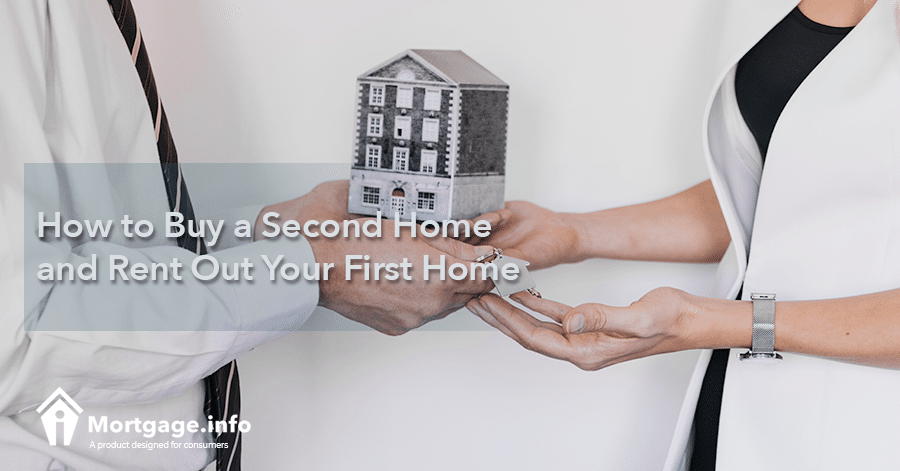Deciding to move while you own a home doesn’t automatically mean you have to sell your current home. If you want to hang onto it, whether for future use or just to have an investment, you may be able to rent it to others.
Get Matched with a Lender, Click Here.
While not everyone will qualify to have two mortgages, some people can. Below we show you what you’ll need to do in order to buy a second home while renting out your first home.
Can you Afford Two Mortgages?
The first question you must answer is if you can afford two mortgages. Yes, you’ll likely rent out your home and hopefully, the rent covers the mortgage, but what if your renters default? There’s no guarantee you’ll have rent coming in every month. You have to ask yourself if you can afford the mortgage on both homes on your own.
Can you Afford the Maintenance on Two Homes?
Owning a home means more than paying the mortgage. You also have to pay for the home’s upkeep. Renters don’t pay for maintenance or repairs – that falls on you. Estimate 1% of the home’s value in annual maintenance and repair costs, but prepare yourself for a figure higher or lower than that depending on the age and condition of the home.
Will Your Lender Allow It?
Now you need to have a conversation with your lender. Not all mortgage types allow you to rent out your home. Any government-backed loan, such as an FHA, VA, or USDA loan won’t allow it. If you have a conventional or subprime loan, though, you may be able to convert your primary home to a rental home.
Again, ask the lender first. If you find that your mortgage doesn’t allow you to rent it out, you may have to refinance your mortgage before taking the next step. For example, if you have an FHA loan, you may need to refinance into a conventional loan to use the home as an investment property.
Will the Homeowner’s Association Allow It?
Many people don’t think about asking their HOA if they can rent out their home. You’d be surprised at how many HOAs have restrictions on renting out homes, though. They want to protect the values of the area’s homes, so they often restrict owners from renting the home out to others.
HOAs also restrict rentals because renters have a lower likelihood of caring for the home. This doesn’t mean renters are bad – but it does happen periodically. If renters don’t care for the property or they don’t listen to the HOAs rules, it puts the integrity of the other homes in the area at risk.
Click to See the Latest Mortgage Rates.
Do You Qualify for a Mortgage on the Second Home?
Now it’s the tricky part. You have to qualify for the second mortgage. Expect lenders to have strict requirements because carrying two mortgages puts you at risk of default.
Lenders will ask for tighter requirements than they needed when you purchased your current home. They may want a credit score of at least 700 and a down payment of 20% or more. Many lenders also require that you have at least six months of reserves available. This means having six months of your principal, interest, real estate taxes, and homeowner’s insurance in a liquid account, such as a savings account. This gives the lender reassurance that you can cover the mortgage should your renters stop paying the rent or the home sits vacant.
Do You Have Rental Income?
If you already have a renter for your current home, you may be able to use the rental income as part of your qualifying income. You must have a signed and executed lease in order for this to work, though. If you are lucky enough to find renters before you apply for the mortgage for your second home, you can use the rental income.
Keep in mind that lenders won’t use the full amount of the rent on the lease. They use a ‘vacancy factor’, which accounts for times when you don’t have renters in the home. Typically, lenders use 75% of the agreed-upon-rent. For example, if your lease says $900 in rent, lenders will use $675 as your rental income.
Some lenders require experience as a landlord before they’ll use your rental income for qualifying purposes, though. Talk to your lender about the possibilities of using rental income before you assume that you can add it to your qualifying income.
Your first home can be a great way to start an investment real estate portfolio. Take your time in finding a lender. Use a lender that offers flexible financing options and will help you make the most of your new position as a landlord. Choose your tenants carefully and use the expertise of a real estate attorney to make sure all of your bases are covered.

